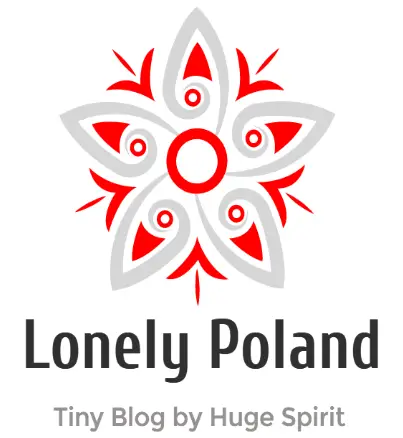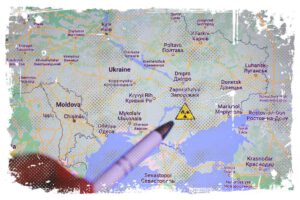Let me say, anti-communism is all about advocating a total and relentless fight against communism worldwide. Mainly, it’s backed by capitalist groups wanting to showcase the superiority of capitalism over the communist ideology.
Anti-communism wields various methods to battle communism, starting with propaganda, through laws prohibiting communist activities, ending with armed conflict.
Appreciating Capitalism – Anti-Communism’s Vision
Anti-communism emphasizes the values and virtues of capitalism. It often champions free-market economics, philosophy, and religion – these fields are the most despised by communists. Furthermore, anti-communism highlights the perils of communism, which eventually leads to totalitarianism.
- I think you should also read: How Poland Became Communist After WWII?
For example, POWZW – an Agreement of Organizations Cooperating in the Fight Against Communism, is a clear embodiment of anti-communism. The American trend known as McCarthyism can be cited too.
↳ PRO TIP: Do you like traveling? Then before you buy any ticket or book an attraction, check if it's available in this worldwide Viator Database. You may save a lot of money and time. No need to thank me :)

McCarthyism – An American Anti-Communist Movement
Promoted in the USA by Joseph Raymond McCarthy, McCarthyism aimed to seek out and eradicate communist activities. It targeted officials of the NKVD and the Communist Party of the United States.
Sadly, it often led to the persecution of innocent individuals. McCarthyism relied on unverifiable evidence and frequently made decisions based on hints and clues.
Anti-Communism – A Global Dissatisfaction
I believe anti-communism has become a trend that spread worldwide as a form of dissatisfaction against communists. The results of communist policy were tragic, leading to growing disdain for dictatorships and regimes of terror promoted by communism.
On the other hand, anti-communism led to a blind witch-hunt, claiming victims such as Charlie Chaplin, David Bohm, and Arthur Miller.
Anti-Communism in Capitalist Countries
Anti-communism was implemented in capitalist countries. Famous proponents include the US president – Ronald Reagan, but Adolf Hitler and Francisco Franco also admitted to their anti-communist policies. In Poland, the representative of anti-communism was Józef Piłsudski, who harbored deep hatred for Bolsheviks and communists.
Anti-Communism Today
Nowadays, anti-communism largely rests on what is called lustration, which is about checking whether a person collaborated with communists. So, if you want to understand the modern essence of anti-communism, it is worth knowing this concept.
- I think You may also like this article: Religion and Church in Poland Before and During World War II
Anti-Communism in Poland’s History
On one side of the proverbial barricade stood the Polska Partia Socjalistyczna (PPS) – a political entity oriented towards strengtheaning the independent existence of the Polish state, advocating for social and economic reforms within the existing parliamentary system.
On the other side was the Komunistyczna Partia Robotnicza Polski (KPRP), later the Komunistyczna Partia Polski (KPP) – a political formation aligned with Soviet factors, not just negating, but also combating the idea of an independent and sovereign Poland, striving in every way to realize the idea of the dictatorship of the proletariat.
These frictions took the form of an unspoken political war, in which the communists recognized the socialists as their greatest enemies, who in turn became one of the pillars of Polish anti-communism.
The Roots and Character of Conflict
If you need to understand the crux of the confrontation between the socialists and the communists, allow me to explain. The issue of re-establishing and functioning of the Republic and its relationship to the Bolshevik revolution in Russia and the politics pursued by Moscow, stood as the axis of this confrontation.

The rivalry between the socialists and the communists, known as esdeki, continued from the turn of the 19th and 20th centuries. The creation of an independent Polish state did not extinguish the dispute.
On the contrary, it gained momentum. This was a natural consequence of the fact that the issue of re-establishing and functioning of the Republic and its stance towards the Bolshevik revolution in Russia and Moscow’s politics were the axis of the confrontation.
The fight was fought on many levels – from verbal skirmishes, cursing and programmatic-political actions carried out in the press and party journalism, to bloody and deadly force clashes taking place on the streets of Polish cities.
The Consequences of Political Differences
These were the consequences of programmatic-political contradictions between PPS and KPRP/KPP, not their causative strength. The latter, in both socialists and communists, were the decisions made at successive party congresses.

This is where the programmatic and political thought of Polish socialists was largely shaped, the course and thematic areas of interest of party journalism were defined, and the resolutions adopted there were the most important guide for ordinary activists and sympathizers of the socialist formation.
- You should also read: Challenges of Rebuilding Poland’s Infrastructure After World War II
Anti-Communism of the Socialists
I believe it’s worth saying that the PPS’s anti-communism was decreed and implemented in party life at these congresses, which depended on many factors, including the party mood and domination of the right or left wing of the PPS at a given time.
Despite all the complexity of the factors that shaped the political thought of the PPS in the interwar realities, party congresses were an important key to understanding and comprehending the mechanisms of the formation and development of anti-communist attitudes in the socialist party.
In the first months of the existence of the reborn Republic, it was the independent PPS that became the only real opposition in the Councils of Workers’ Delegates for the communist faction and the supporting Jewish factions.
Here, socialist leaders – Mieczysław Niedziałkowski, Kazimierz Czapliński and others – opposed communist efforts to cause so-called revolutionary fermentation using strike actions.
As a consequence, this led the PPS to leave the previously unified workers’ councils in June 1919 and create their own councils. The war on the left became a fact.
The Rising Tension Between PPS and Communists
Each year, in which the communists failed to achieve their revolutionary goals, they antagonized their relations with the PPS, recognizing it as a renegade party, the „chain dogs of the bourgeoisie”, social fascists and traitors of the workers’ cause.
The socialists’ anti-communism was largely caused by the aggressive and offensive policy of the communist party aimed at the PPS structures. The communists, aiming to cause a bloody revolution, sought to win over the working masses.
Here, one of the real barriers was the influence of the socialist party. Therefore, each year, in which the comunists failed to achieve their revolutionary goals, they antagonized their relations with the PPS, recognizing it as a renegade party, the „chain dogs of the bourgeoisie”, social fascists and traitors of the workers’ cause, and the war on the left gained strength.
References:
- https://dzieje.pl/tag/obalenie-komunizmu
- https://pl.wikipedia.org/wiki/Komunizm_w_Polsce
- https://warhist.pl/polska/upadek-komunizmu-w-polsce-od-protestow-do-solidarnosci/




